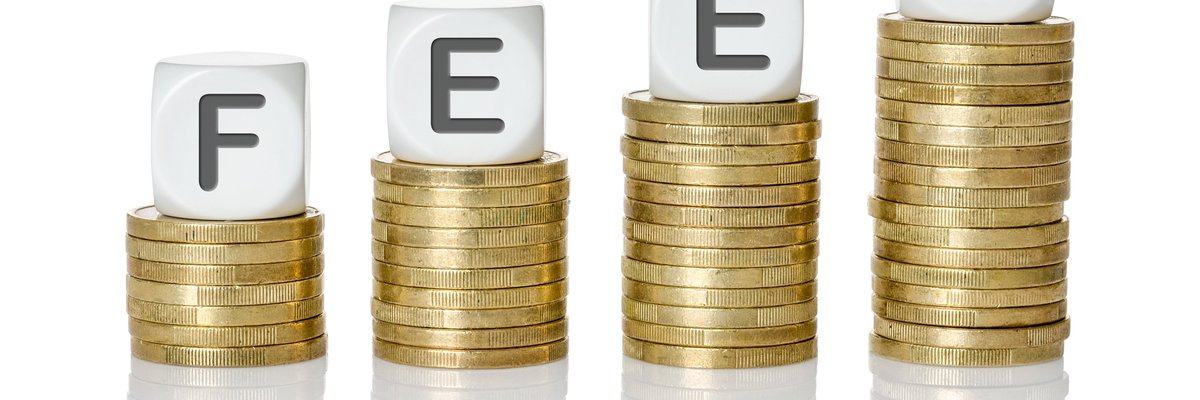5 Sneaky Personal Loan Fees to Watch Out For
Fees make a personal loan more expensive than it needs to be.
Personal loans can be a great financial product when you need to repair your home or vehicle. A personal loan is also a smart way to consolidate debt and can even finance renovations to your home. While the best personal loan lenders don't nickel and dime you with expensive fees, others do. As you shop for a personal loan, be on the lookout for these five sneaky fees.
1. Application fee
Some lenders charge an application fee to "cover the cost of processing your loan application." While the amount of this sneaky fee varies by lender, it's typically between $25 to $50. The application fee is ordinarily nonrefundable even if you decide not to proceed with the loan.
2. Origination fee
As you delve into loan terms, you may find that your lender charges an origination fee. The tricky thing about origination fees is that they are often renamed, called administrative, disbursement, processing, or underwriting fees. Sounds legitimate, right? Unless you have no other option, it's best to look for a lender that does not charge you money to lend you funds that you will have to repay with interest.
It's a bit murky to figure out what these fees are meant to cover. If you ask the lender, they'll probably tell you that it's to pay for the time and effort put into processing your loan. It's also challenging to figure out why some lenders charge so much more than others. Some lenders charge a flat fee, while others charge a percentage of your loan, typically between 1% and 8%. How steep the fee is may be tied to your credit score. If your credit is less than great, you're likely to be hit with a higher origination fee.
Here's how that works. Let's say you take out a loan for $10,000, and the lender charges an origination fee of 6%. The origination fee will be paid in one of two ways: taken off the top or monthly. If it's taken off the top (which is common), rather than receive a loan for $10,000, you will receive $9,400 ($10,000 - $600 = $9,400). The rub is that you will pay interest on the entire $10,000, not just the $9,400 received.
3. Late fees
If you make a late payment, you can expect to get hit with a late fee. Some lenders charge a flat fee between $20 to $50, while others charge a percentage equal to your scheduled payment amount. The amount varies by lender but is often 4% to 5%. For example, if your monthly payment is $300 and the lender charges a late fee of 4%, you will owe an extra $12 on that month's payment.
4. Insufficient funds fee
Let's say your monthly payment is $300, but you only have $290 in your checking account. Many lenders charge a fee for the shortfall, often between $25 to $50. On top of that, unless you have overdraft protection with your bank, you're likely to face an overdraft fee on that end.
5. Prepayment penalty
Lenders count on borrowers taking the full repayment term to pay a loan. That's because the longer you pay a loan, the more you pay in interest. When a borrower wants to pay a loan off early, some lenders hit them with a fee for doing so. This penalty may be referred to as an "exit fee," but it's a waste of money, whatever the label. Read a loan contract carefully to learn if the lender you're considering charges a prepayment penalty. Because the penalty imposed varies by lender, also ask how they calculate their fee. It may be a flat fee, or the lender may require you to pay all the interest they were counting on receiving over the life of the loan.
The variety of ridiculous, sneaky fees charged by some lenders underscores the importance of shopping around before signing on for a personal loan. Most lenders run a "soft" credit check that will not impact your credit score before telling you what your interest rate will be. If that interest rate looks acceptable to you, find out about every fee attached to the loan.
It's only when you decide to move forward with a loan that a lender runs a "hard" credit check to verify that all information provided is still accurate. The hard credit check will lower your credit score slightly, but the score will quickly rebound after several on-time loan payments are reported to the credit bureaus.
If you have a strong credit score, you're in an excellent position to call the shots. You have your choice of lenders, and there is no need to work with one that charges costly fees. If your credit is poor, you may want to take time to raise your credit score so that you can be in the driver's seat any time you need to borrow.
Our Research Expert
We're firm believers in the Golden Rule, which is why editorial opinions are ours alone and have not been previously reviewed, approved, or endorsed by included advertisers. Motley Fool Money does not cover all offers on the market. Motley Fool Money is 100% owned and operated by The Motley Fool. Our knowledgeable team of personal finance editors and analysts are employed by The Motley Fool and held to the same set of publishing standards and editorial integrity while maintaining professional separation from the analysts and editors on other Motley Fool brands. Terms may apply to offers listed on this page.



